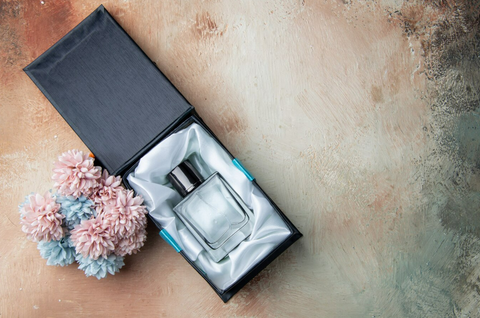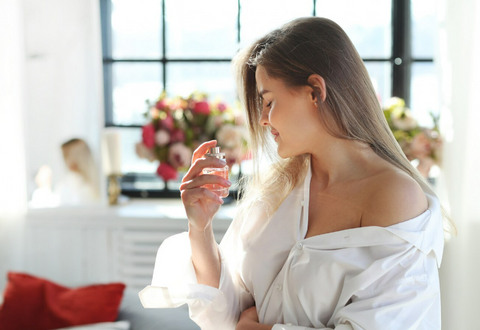Perfume dupes can be a great way to enjoy the fragrance of a high-end perfume at a fraction of the cost. However, there are some things to consider before you buy. Dupes may not smell exactly like the original, and they often have shorter longevity. Additionally, the quality of ingredients can vary, and some dupes may contain irritants. Ultimately, the decision of whether or not to buy a perfume dupe depends on your priorities. If you're on a budget and don't mind a slightly different scent, then a dupe may be a good option. However, if you're looking for an exact replica of a designer fragrance with superior performance, then you're better off sticking with the original.

The Allure of Dupes
Budget-Friendly Bliss: The Power of Exploration
Designer perfumes can often be a luxury reserved for special occasions. A single bottle can cost hundreds of dollars, making it difficult to justify owning a diverse fragrance collection.
Here's where dupes shine. Their affordability allows you to:
- Build a Diverse Fragrance Wardrobe: Owning a variety of dupes lets you experiment with different scent profiles. You can have a fresh citrus for daytime wear, a warm amber for evenings, and a floral bouquet for special occasions. This flexibility allows you to tailor your scent to your mood and activity, enhancing your personal style.
- Discover New Olfactory Families: Fragrances are categorized by their dominant notes, like floral, oriental, or citrus. Dupes can be a gateway to exploring unfamiliar fragrance families. For example, if you typically gravitate towards sweet florals, a dupe inspired by a woody oriental scent might introduce you to a whole new world of olfactory experiences.
- Blind-Buying with Less Risk: When you encounter a new, intriguing scent online or in a magazine, blind-buying a full bottle of expensive designer perfume can be a gamble. Dupes allow you to test the waters at a lower cost. If you fall in love with a dupe inspired by a particular designer scent, it can be your launchpad for eventually purchasing the original.
The Power of Inspiration: A Stepping Stone to Luxury
Dupes can be a wonderful introduction to the world of high-end fragrances. High-quality dupes accurately capture the essence of a popular designer scent, allowing you to experience its luxurious character at a fraction of the price. This can ignite a passion for high-end perfumery, inspiring you to:
- Appreciate the Nuances of Fine Fragrance: Designer perfumes are often crafted with a higher concentration of high-quality essential oils and aroma chemicals. Dupes can help you appreciate the complexity and longevity of these ingredients, allowing you to discern the subtle nuances that distinguish designer scents from others.
- Develop a More Discerning Nose: As you experiment with dupes and their original counterparts, your sense of smell becomes more refined. You begin to recognize the hallmarks of a well-crafted fragrance, like smooth transitions between top, middle, and base notes, and the depth of the overall scent profile. This newfound knowledge empowers you to make informed decisions when you eventually invest in a designer perfume.
- Fuel Your Fragrance Journey: Exploring both dupes and originals fuels your passion for the world of fragrance. You discover new brands, learn about different perfumers and their styles, and ultimately, develop a more personal fragrance identity.
Finding Your Niche: A World Beyond Replication
Not all dupes are created equal. While some aim for an exact replica, others take inspiration from designer scents and create unique interpretations. This opens the door to:
- Discovering Hidden Gems: Dupes can introduce you to variations on a theme that might resonate more deeply with your personal preferences. A dupe inspired by a popular gourmand fragrance might offer a lighter, fresher take, while another might amp up the spicier elements. This allows you to discover scents that are similar yet unique, potentially becoming your new signature fragrance.
- Supporting Independent Perfumers: Many dupe companies are small, independent businesses that source their ingredients ethically and prioritize quality. By choosing these dupes, you contribute to the growth of independent perfumers and support a more diverse fragrance landscape.
- Exploring Niche Notes: Niche perfumery often utilizes unique and expensive ingredients rarely found in designer fragrances. Dupes inspired by niche scents might use readily available alternatives to create a similar olfactive experience. This allows you to experience the world of niche perfumery without the exorbitant price tag.
The Sustainability Argument: A More Conscious Choice
The production of luxury goods, including designer perfumes, can have a significant environmental impact. Factors like resource extraction, manufacturing processes, and packaging contribute to a hefty carbon footprint. Choosing dupes can be a more sustainable alternative for a few reasons:
- Smaller Production Footprint: Dupe companies are often smaller operations with less complex supply chains. This translates to a potentially lower environmental impact compared to the large-scale production required for designer fragrances.
- Eco-Conscious Practices: Many forward-thinking dupe companies prioritize sustainability. They might use ethically sourced, renewable ingredients, opt for recycled packaging materials, and implement energy-efficient practices in their production facilities.
- Extending the Life of Luxury Perfumes: While dupes are a great way to experience a beloved designer scent on a daily basis, they can't fully replace the original. Using a dupe for everyday wear allows you to reserve your precious bottle of designer perfume for special occasions, making it last longer and minimizing waste.

Unveiling the Downside of Dupes
While dupes offer an enticing alternative to designer perfumes, there are several downsides to consider before reaching for a budget-friendly bottle. Let's delve deeper into the potential pitfalls:
The Quality Conundrum: A Breakdown of Ingredients
The magic of a fragrance lies in its composition. Designer perfumes often utilize a complex blend of natural and synthetic ingredients, each contributing to the overall scent profile. Natural ingredients like essential oils and absolutes offer depth and richness, but they are expensive and can be volatile. Synthetic molecules, on the other hand, can be more affordable and provide stability, but they might lack the nuanced character of natural ingredients.
Here's where dupes face their biggest challenge. To achieve a similar scent at a lower price point, dupe manufacturers often rely heavily on synthetic substitutes. While some dupes utilize high-quality synthetics that recreate the essence of the original fragrance remarkably well, others might use cheaper synthetic molecules that capture only a basic impression. This can lead to several issues:
- Lack of Complexity: Designer perfumes often have a layered scent profile. Top notes offer an initial burst of fragrance, heart notes provide the core character, and base notes create a long-lasting impression. Dupes that rely heavily on simpler synthetic blends might lack this layering, resulting in a flat, one-dimensional scent that fades quickly.
- Chemical Odors: Low-quality synthetic substitutes can have an unpleasant chemical undertone, which can be quite noticeable, especially as the fragrance dries down. This can detract from the overall experience and potentially cause headaches in some individuals.
- Allergic Reactions: Synthetic ingredients can be potential allergens. While reputable dupe companies should list their ingredients, some might not adhere to strict labeling practices. This can pose a risk for people with fragrance sensitivities.
The Olfactory Enigma: Skin Chemistry and the Fragrance Journey
Our olfactory experience is a unique journey. The way a fragrance interacts with our body chemistry plays a significant role in how it smells on us. This chemistry involves several factors:
- Skin pH: Our skin has a slightly acidic pH level. This can affect how a fragrance unfolds. For example, a citrusy scent might smell sharper on someone with lower skin pH, while a floral fragrance might become sweeter.
- Sebum Production: Sebum, a natural oil produced by our sebaceous glands, can act as a carrier for fragrance molecules. People with naturally oily skin might find that fragrances last longer on them, while those with drier skin might need to reapply more frequently.
- Personal Microbiome: Our skin is home to a diverse community of microorganisms. These tiny creatures can interact with fragrance molecules, subtly altering the scent profile.
What this means for dupes is that even the most accurate dupe might not smell exactly like the designer perfume on you. The subtle variations in your skin chemistry could cause the fragrance to develop differently, highlighting certain notes or even creating an entirely different scent profile.
Ethics and Legality: The Murky Waters of Duplication
The legal landscape surrounding dupes can be a bit murky. Unlike trademarks, which protect brand names and logos, copyright laws protect the creative expression of an idea. While dupes don't infringe on trademarks by not claiming to be the original brand, they can get close to copyright infringement if they replicate the entire fragrance experience too closely.
The line can be blurry. Here's where things get complicated:- Olfactory Notes vs. Expression: A fragrance is composed of a specific blend of notes. However, the idea of "rose" or "vanilla" as a scent is not copyrightable. It's the unique way these notes are combined and the resulting overall fragrance experience that falls under copyright protection.
- Reverse Engineering: Some dupe companies might engage in reverse engineering. They obtain a sample of the designer perfume, analyze its chemical composition, and then attempt to recreate it using different ingredients. While this practice itself might not be illegal, the resulting fragrance could be too close to the original, potentially infringing on copyright.
- The ethical considerations here are also important. Designer perfumes represent the creative vision of perfumers, often honed over years of work. While dupes offer an affordable alternative, they don't contribute to the support and innovation within the fragrance industry.
The Missing Experience: More than just a Scent
Buying a designer perfume is more than just acquiring a scent; it's an indulgence for the senses. From the moment you unbox the beautifully crafted bottle to the first spritz, the experience is designed to be luxurious.
- Packaging Prowess: Designer perfume bottles are often works of art themselves. They're crafted from high-quality materials, adorned with intricate details, and designed to be displayed with pride. Dupe packaging, on the other hand, is often simple and functional, lacking the visual appeal and collectability factor of high-end brands.
- The Brand Story: Many designer fragrances have a rich history and heritage. The brand story can be a powerful draw, connecting the wearer to a sense of tradition, luxury, and even celebrity. Dupes lack this narrative element, and the experience can feel impersonal.
- The Power of Perception: There's a psychological aspect to fragrance. The perception of a brand and its association with luxury can enhance the way the scent is experienced. Wearing a designer perfume can make you feel more confident, empowered, and sophisticated. Dupes might not evoke the same level of emotional connection.
Beyond the Experience
- Ingredient Intrigue: Designer perfumes often use high-quality, natural ingredients like essential oils and absolutes. These ingredients can be expensive, but they contribute to the complexity and richness of the fragrance. Dupes, in an effort to keep costs low, may use synthetic substitutes. These can sometimes smell harsh, lack the depth of natural ingredients, and may not develop as beautifully on the skin.
- Performance Paradox: Luxury fragrances are formulated with high-quality ingredients that ensure long-lasting scent. A single spritz of a designer perfume can linger for hours. Dupes, on the other hand, might have a weaker sillage (scent trail) and longevity, requiring more frequent reapplication throughout the day.
- The Ethical Enigma: Duplication can be a legal grey area. While dupes don't infringe on trademarks (they don't claim to be the original brand), some may skirt copyright laws by replicating the entire fragrance experience too closely. This can raise ethical concerns about supporting companies that don't invest in original fragrance creation.

Navigating the Dupe World Like a Pro
Welcome to the exciting, yet sometimes confusing, world of perfume dupes! Here's your ultimate guide to becoming a dupe-savvy shopper:
Do Your Research: Quality Matters
Not all dupes are created equal. Some brands prioritize replicating the designer scent profile meticulously, using high-quality ingredients that deliver impressive longevity and sillage (the scent trail). Others may focus solely on affordability, resorting to synthetic substitutes that might capture the general idea of the fragrance but lack the complexity and nuance of the original.
Here's how to find reputable dupe companies:
- Online Fragrance Communities: Fragrance enthusiasts are a passionate bunch! Online forums and Facebook groups dedicated to perfume often have dedicated threads discussing dupes. Search for discussions about specific designer scents you're interested in and see which dupes are getting rave reviews.
- Perfume Review Blogs: Many perfume bloggers write extensively about dupes, comparing them to the originals and offering honest opinions on quality and performance. Look for blogs with a focus on dupes or "indie" fragrances (smaller, independent brands).
- Dupe Brand Websites & Reviews: Read through the brand's website, paying close attention to their philosophy and ingredient sourcing. Look for transparency about the types of ingredients they use and any certifications they might hold. Don't hesitate to search for independent reviews of the brand and specific dupes they offer.
Embrace the Sample: Test Before You Invest
Thanks to the growing popularity of dupes, many companies offer affordable sample sets or individual fragrance samples. This is your golden ticket to trying out a dupe before committing to a full bottle. Here are some tips for maximizing your sample experience:
- Order Sample Sets: Many dupe companies offer sample sets featuring their interpretations of popular designer fragrances. This allows you to compare several dupes inspired by the same scent, discovering which one resonates most with you.
- Consider Sample Subscription Services: Some subscription services focus on delivering fragrance samples to your doorstep. You can customize your preferences and receive samples of dupes alongside niche or designer fragrances, broadening your fragrance horizons.
- The Power of Skin Testing: Fragrances interact with your unique body chemistry, creating a personalized scent profile. Always test a perfume dupe on a clean area of your skin, preferably your inner wrist or behind your ear. Give it time to develop (around 15 minutes) and assess the scent throughout the day to gauge its longevity and how it evolves on your skin.
Know Your Priorities: Finding the Right Balance
Dupes offer a spectrum of affordability and fragrance accuracy. Before diving in, take a moment to consider your priorities:
- Budget First, Fragrance Second: If affordability is your top concern, you might be more open to dupes that offer a general interpretation of a designer scent. These dupes might not be exact replicas, but they can still be enjoyable fragrances in their own right.
- Seeking a Near-Perfect Match: If replicating a beloved designer scent is paramount, be prepared to invest a bit more in a higher-quality dupe. Brands that prioritize using high-quality aroma chemicals are more likely to achieve an accurate olfactory match.
- The Value of Longevity & Sillage: Do you crave a fragrance that lingers throughout the day? Higher-quality dupes will often invest in ingredients that ensure better longevity and sillage compared to budget-friendly options.
Explore Niche Brands: A World of Unique Scents
The world of niche perfumery offers a delightful alternative. Niche brands often create unique, high-quality fragrances at a price point that falls between designer and dupes. While they might not be direct replicas of popular scents, they offer a chance to discover entirely new and exciting olfactory experiences. Here's why niche deserves a look:
- Supporting Indie Perfumers: Choosing niche brands means supporting independent perfumers and artisans passionate about creating unique fragrances.
- High-Quality Ingredients: Niche perfumers often use a higher quality of ingredients compared to some dupes, resulting in more complex and nuanced scents.
- Discovering Your Signature Scent: Stepping outside the realm of dupes allows you to discover a fragrance that truly reflects your personality, one that might not have a designer counterpart at all.
By following these tips, you'll be well on your way to navigating the world of dupes like a pro. Remember: There's no shame in "dupe hopping" and exploring various options before settling on your perfect fragrance. With a little research, sample testing, and an open mind, you can navigate the world of dupes with confidence and find scents that suit your taste and budget.

The Verdict: Dupes or Originals?
There's no single answer to the "dupes vs. originals" debate. Perfumes are deeply personal, and the ideal choice hinges on your budget, scent preferences, and overall fragrance philosophy. Let's delve deeper into who might benefit most from each option:
The Case for Dupes
- The Fragrance Explorer: Do you crave variety and enjoy discovering new scents? Dupes allow you to experiment with a wider range of fragrance profiles without the hefty price tag of designer brands. You can explore different fragrance families – floral, citrus, oriental – and discover what truly resonates with you. This experimentation can help you refine your taste and eventually lead you to your signature scent, either in a dupe or an original form.
- The Budget-Conscious Connoisseur: High-end perfumes can be a significant investment. Dupes offer a chance to experience luxurious fragrances at a fraction of the cost. You can indulge in the joy of wearing a scent you love without breaking the bank. This allows you to own a wider fragrance wardrobe, catering to different moods, seasons, and occasions.
- The Open-Minded Olfactory Adventurer: Not everyone seeks a perfect replica. Some fragrance enthusiasts enjoy exploring variations on a theme. Dupes often capture the essence of a popular perfume but add a unique twist, perhaps by using a different note in the base or heart. This can lead to exciting discoveries – you might find a dupe that resonates with you even more than the original inspiration.
- The Sustainability Advocate: While the environmental impact of the fragrance industry is complex, some argue that dupes can be a more sustainable choice. This is especially true if the dupe company prioritizes eco-friendly practices like using recycled materials in packaging and sourcing ingredients responsibly. Additionally, dupes can help curb the demand for overproduction of luxury goods, potentially reducing the industry's environmental footprint.
The Allure of Originals
- The Quality Connoisseur: Designer perfumes are often formulated with high-quality, natural ingredients that create a complex and nuanced fragrance experience. These ingredients typically last longer on the skin, offering superior longevity and sillage (the scent trail you leave behind). Dupes, while sometimes impressive, may use synthetic substitutes that lack the depth and richness of the originals.
- The Brand Believer: For some people, fragrance is about more than just the scent. The brand history, the luxurious packaging, and the feeling of indulgence all contribute to the allure. Designer perfumes often represent a certain level of prestige and craftsmanship. Owning and wearing a coveted brand can be a confidence boost and a statement piece.
- The Signature Scent Seeker: Sometimes, you find a fragrance that perfectly complements your body chemistry and becomes your signature scent. It becomes synonymous with you, leaving a lasting impression on those around you. If you've discovered that perfect scent in a designer perfume, the investment in the original might be well worth it.
- The Investment in Memories: Designer perfumes can be linked to special memories and milestones. Perhaps a loved one wore a particular scent, or you wore a specific perfume on your wedding day. Owning the original fragrance can evoke these precious memories and add a sentimental value that transcends the pure cost of the perfume.
Finding the Perfect Balance
Ultimately, the choice between dupes and originals is a personal one. You can even embrace both! Use dupes to explore and experiment, and invest in a few high-quality designer perfumes that become your signature scents. The world of fragrance is vast and exciting – allow yourself to discover the joy of both worlds!
Conclusion
The world of fragrance beckons, offering a unique path for everyone. Whether you're drawn to the luxurious experience of designer brands or the affordability of dupes, embrace the exploration.
Dupes empower you to experiment with a variety of scents, while designer perfumes offer a luxurious indulgence. The most rewarding approach might lie in finding a balance: utilize dupes for discovery, then invest in a beloved designer scent.
Regardless of your choice, fragrance education is key. Learn about scent families and how they interact with your skin chemistry. Ultimately, fragrance is a personal journey. Find the scents that make you feel confident and beautiful, and let your olfactory story unfold.

